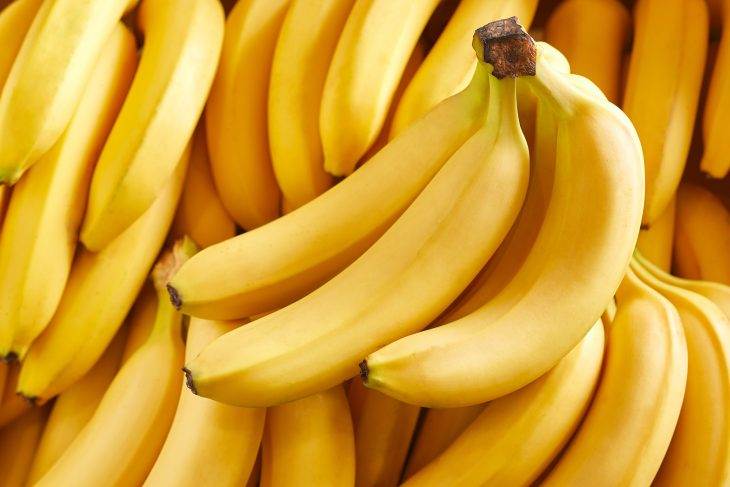
Bananas are one of the most popular fruits in the world and for good reason! Not only is their sweet taste a great addition to any snack, but they’re also incredibly nutritious. But just how healthy are bananas? In this blog post, we’ll take a closer look at 50 incredible banana nutrition facts that you may not have known about this delicious fruit. From the vitamins and minerals that make them so beneficial for your health to some interesting cultural tidbits about why they’ve become such an international staple, you won’t want to miss out on what makes this amazing tropical fruit so special!
Nutrients in a Whole Banana
A medium-sized banana (118 grams) boasts 105 calories, primarily from carbohydrates. This healthy fruit is rich in potassium (422 mg) and vitamin C (10.3 mg), which are essential for maintaining heart health and boosting the immune system, respectively.
Sugar Content
Bananas contain sugar. A medium-sized banana contains approximately 14 grams of sugar. While the sugar in bananas is natural, it can contribute to your daily sugar intake, which should be monitored.
The Filling Nature of Bananas
Bananas are rich in dietary fiber, which can slow digestion and keep you feeling full longer, aiding in weight management.
Highest Protein Fruit
While bananas contain about 1.3 grams of protein per 100 grams, guavas and avocados hold the title for being the highest protein fruits.
Healthiest Fruit
Bananas are undoubtedly healthy; however, the title for the healthiest fruit could go to various fruits like berries (rich in antioxidants), apples (high in fiber), or oranges (loaded with vitamin C), depending on which nutritional aspect you’re focusing on.
Mashed Banana Calories
Mashed bananas can seem to have more calories because mashing increases the banana’s volume, meaning you might consume more without realizing it.
Blending a Banana
Blending a banana doesn’t alter its nutritional content. However, when combined with other nutrient-dense foods in a smoothie, it can boost your intake of essential nutrients.
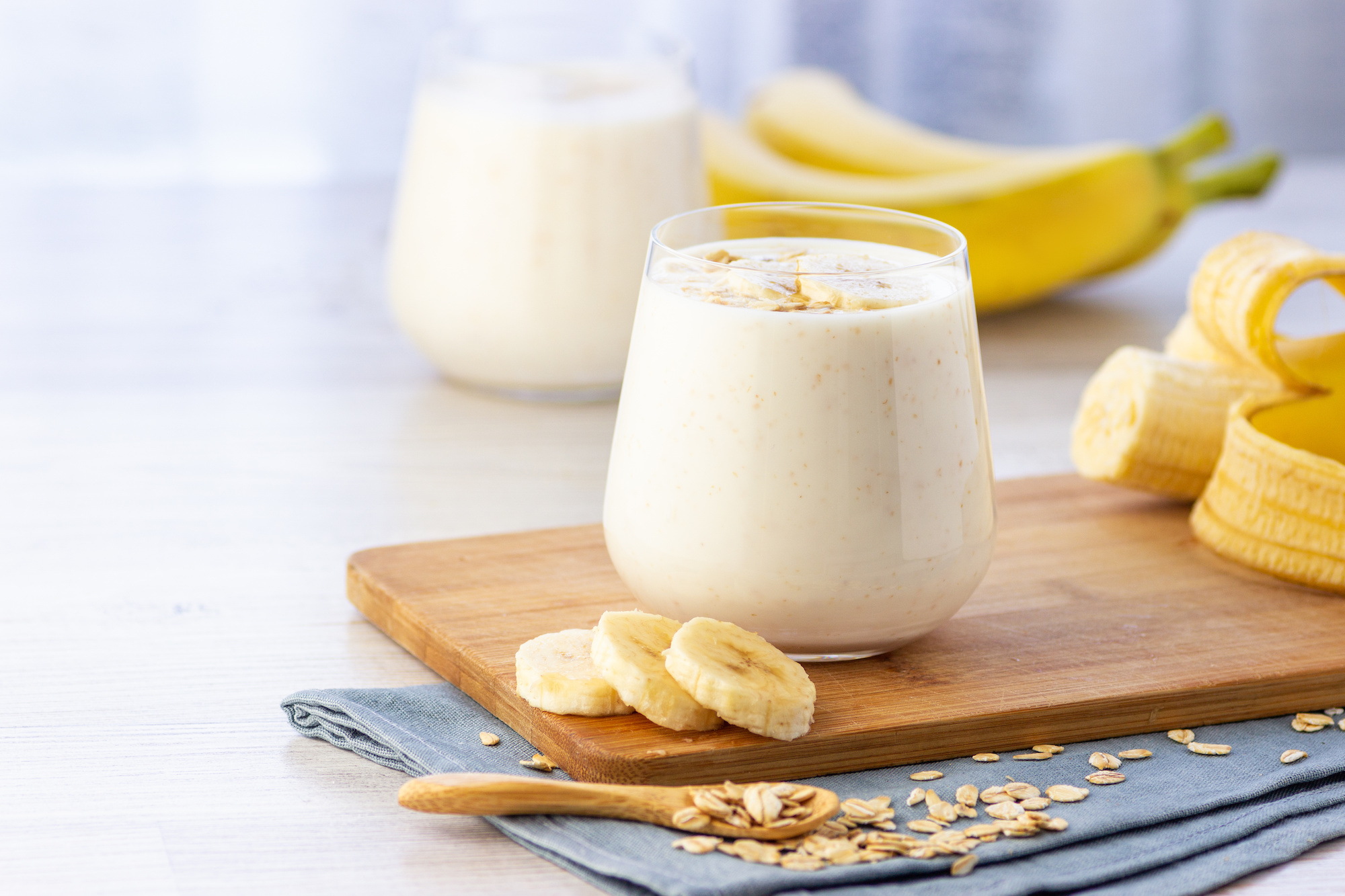
Eating Bananas at Specific Times
There’s no specific time when you should avoid bananas. However, if you have type 2 diabetes or are watching your sugar intake, it might be better to consume bananas with other foods to prevent a spike in blood sugar levels.
Eating Three Bananas a Day
Having three bananas a day is typically acceptable for most individuals, offering a significant dose of potassium and other essential nutrients. However, don’t forget it is essential to maintain a varied diet to ensure you receive a broad spectrum of nutrients.
Consuming 50 Bananas a Day
Eating 50 bananas a day, while not necessarily dangerous, could lead to nutrient imbalances due to the excessive intake of certain nutrients. Plus, the high sugar content might cause digestive issues.
Bananas on an Empty Stomach
Eating bananas on an empty stomach can lead to an abrupt surge in blood sugar levels. It’s better to have them with other food items, like a handful of nuts or whole grains, to maintain a healthy glycemic balance.
Bananas vs. Potatoes
While both bananas and potatoes are good sources of potassium and vitamin C, bananas also provide vitamin B6 and are lower in calories and sodium than potatoes.
Bananas vs. Chips
Bananas are healthier than chips because they’re lower in calories, fats, sodium, and contain no artificial additives, while providing essential nutrients.
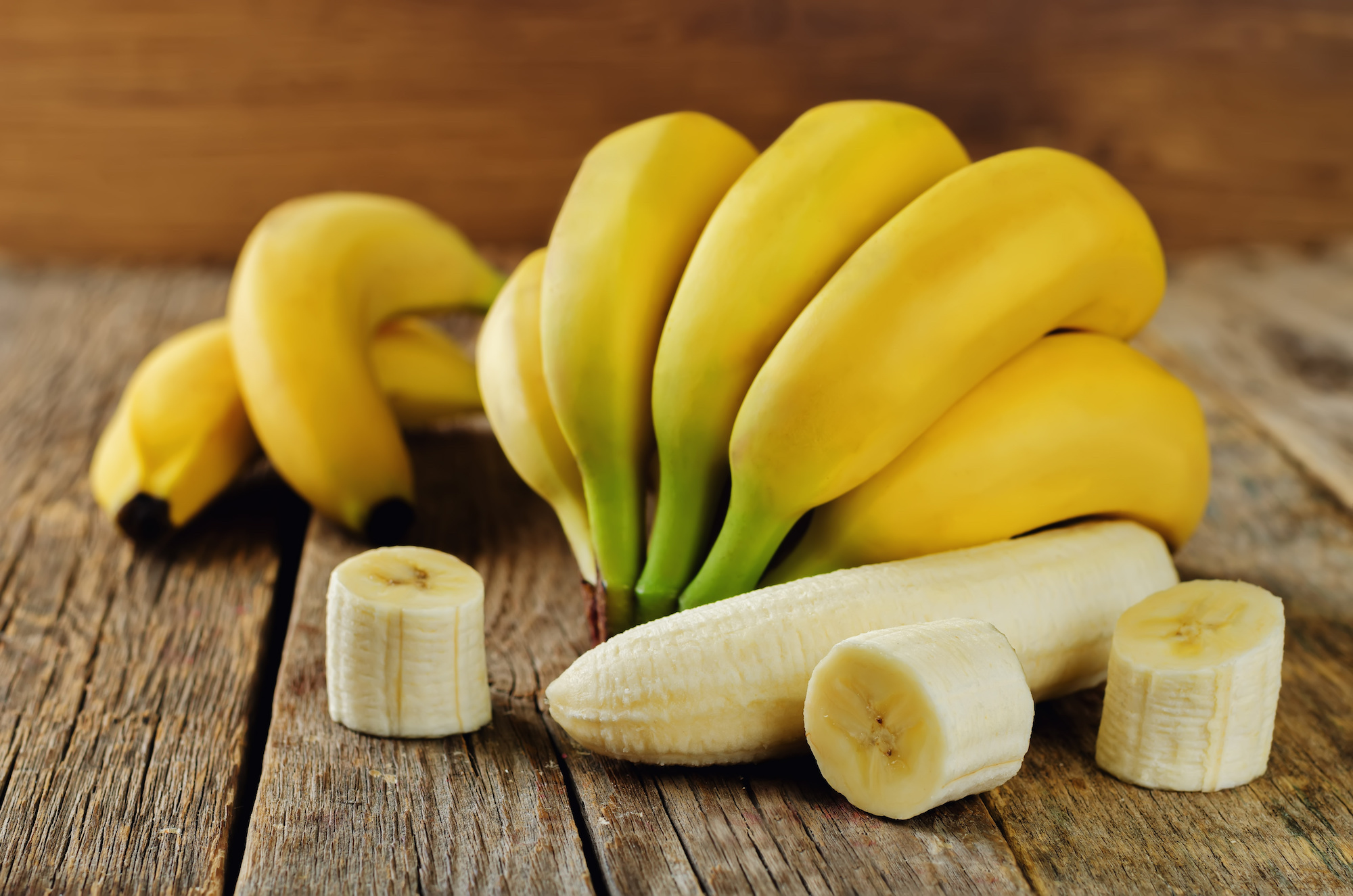
Anti-Aging Properties
Bananas have anti-aging properties due to their high vitamin C and E content, which can help protect the skin from oxidative damage and promote a youthful appearance. Rubbing a banana peel on your face daily can provide skin with antioxidants and nutrients. However, it’s essential to be mindful of potential allergic reactions or irritation and discontinue use if any adverse reactions occur.
Bananas for Skin Health
Bananas are excellent for skin health due to their richness in vitamins A and E, which can help in skin repair and protection against sun damage and aging. Although banana peels are not known to contain collagen, they have antioxidants like lutein, which can support skin health.
Skin Tightening
Bananas are rich in powerful antioxidants, phytochemicals, and moisture, which can nourish and revitalize dry skin, and smooth out wrinkles, thereby potentially tightening saggy skin.
Banana Peels for Eye Wrinkles
While there isn’t solid scientific evidence to support this, some people claim that banana peels may help reduce eye wrinkles due to their antioxidant content.
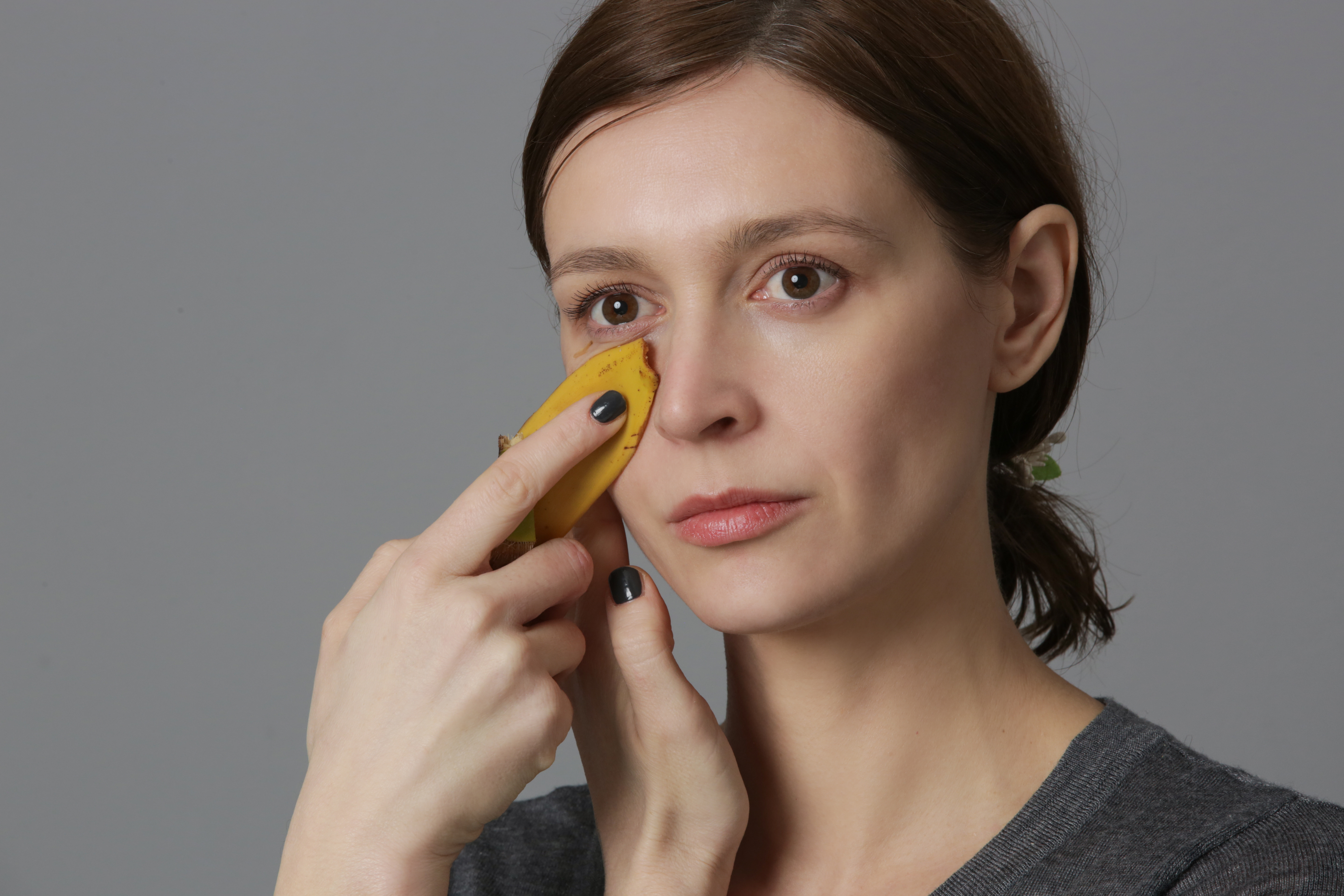
Banana Peels and Teeth Whitening
Banana peels are believed to help whiten teeth due to their rich mineral content, especially potassium, magnesium, and manganese. However, this claim isn’t scientifically proven.
Iron in Banana Peels
Banana peels do contain some iron, but the quantity is quite small compared to other iron-rich foods. Also, it’s not the most accessible source due to its tough texture and bitter taste.
Rubbing Banana Peel on Arm
Rubbing banana peel on your arm is harmless and can provide some skin nourishment due to its nutrient content. It’s also believed to help with minor skin irritations, like bug bites or rashes.
Chewing Banana Peel
Chewing a banana peel isn’t harmful, but its tough texture and bitter taste make it not very pleasant to consume. Cooking it can make it more palatable.
Washing Banana Peel Before Eating
If you intend to consume the peel, washing it thoroughly before eating is highly recommended to remove any dirt or potential pesticide residues.
Boiled Banana Peels Water
Boiling banana peels and drinking the water, often referred to as banana tea, has been used as a home remedy for insomnia. This is due to the presence of tryptophan, an amino acid that can aid in the production of serotonin, a hormone that helps regulate sleep.
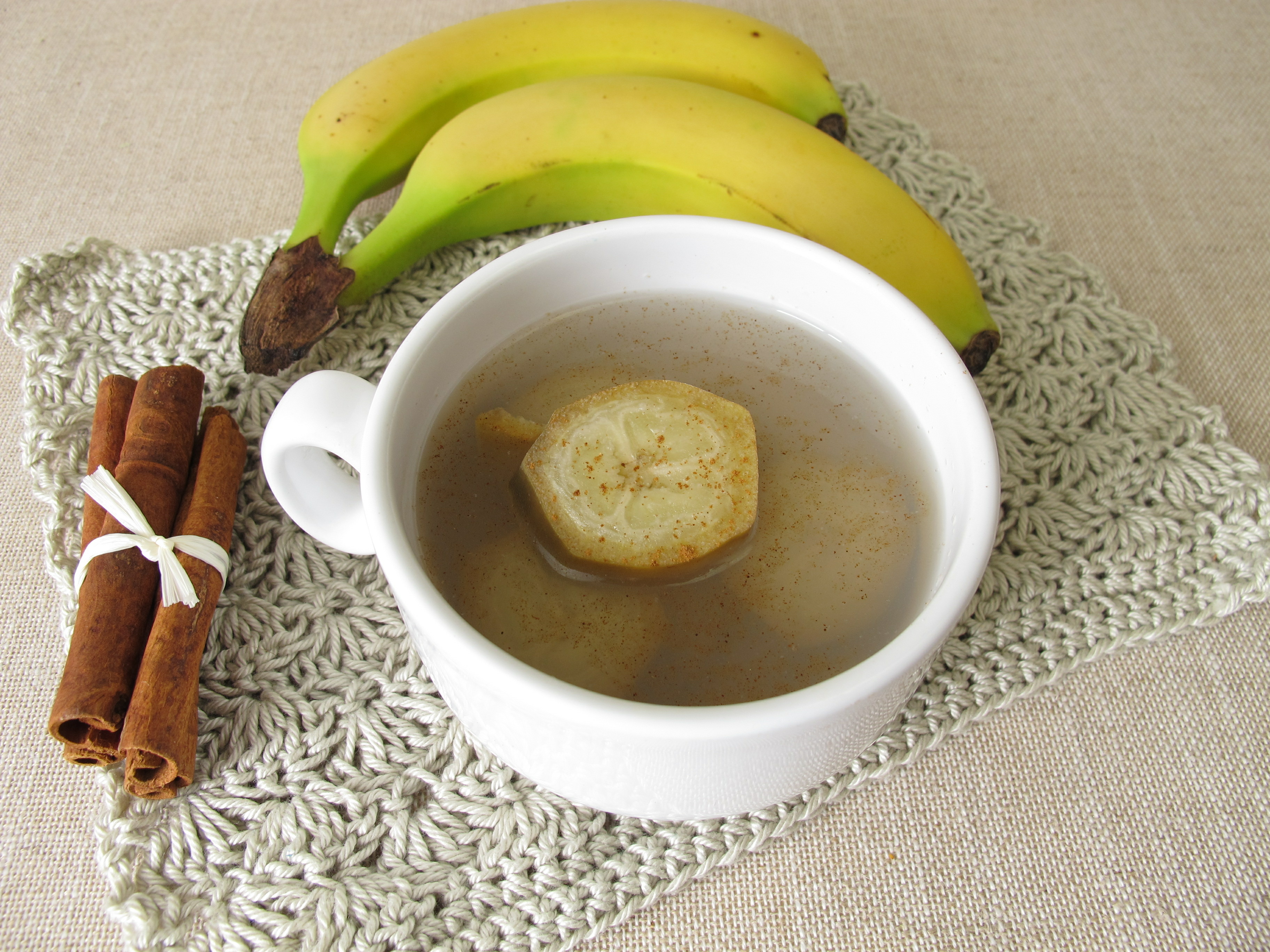
Keeping Bananas Fresh for a Week
To keep bananas fresh for a week, keep them in a cool, dry place, away from other fruits if possible. Once they ripen, you can put them in the fridge. The skin may turn black, but the fruit inside will remain fresh.
Conclusion
The benefits of including bananas in your daily diet are unquestionable. From essential vitamins and minerals to a wide range of health benefits, there’s no doubt it’s one of the best choices for a tasty snack or meal. But this beloved fruit has even more to offer than just nutrition – from its ability to instantly transport us through its tropical, sweet aroma to its significance in many cultures around the world, it’s no wonder that bananas have become so popular throughout history. Whether we’re enjoying a freshly-peeled banana or baking up a batch of banana bread to share with friends and family, this amazing fruit holds an undeniable place in our hearts – and stomachs!
Was this page helpful?
Our commitment to delivering trustworthy and engaging content is at the heart of what we do. Each fact on our site is contributed by real users like you, bringing a wealth of diverse insights and information. To ensure the highest standards of accuracy and reliability, our dedicated editors meticulously review each submission. This process guarantees that the facts we share are not only fascinating but also credible. Trust in our commitment to quality and authenticity as you explore and learn with us.


